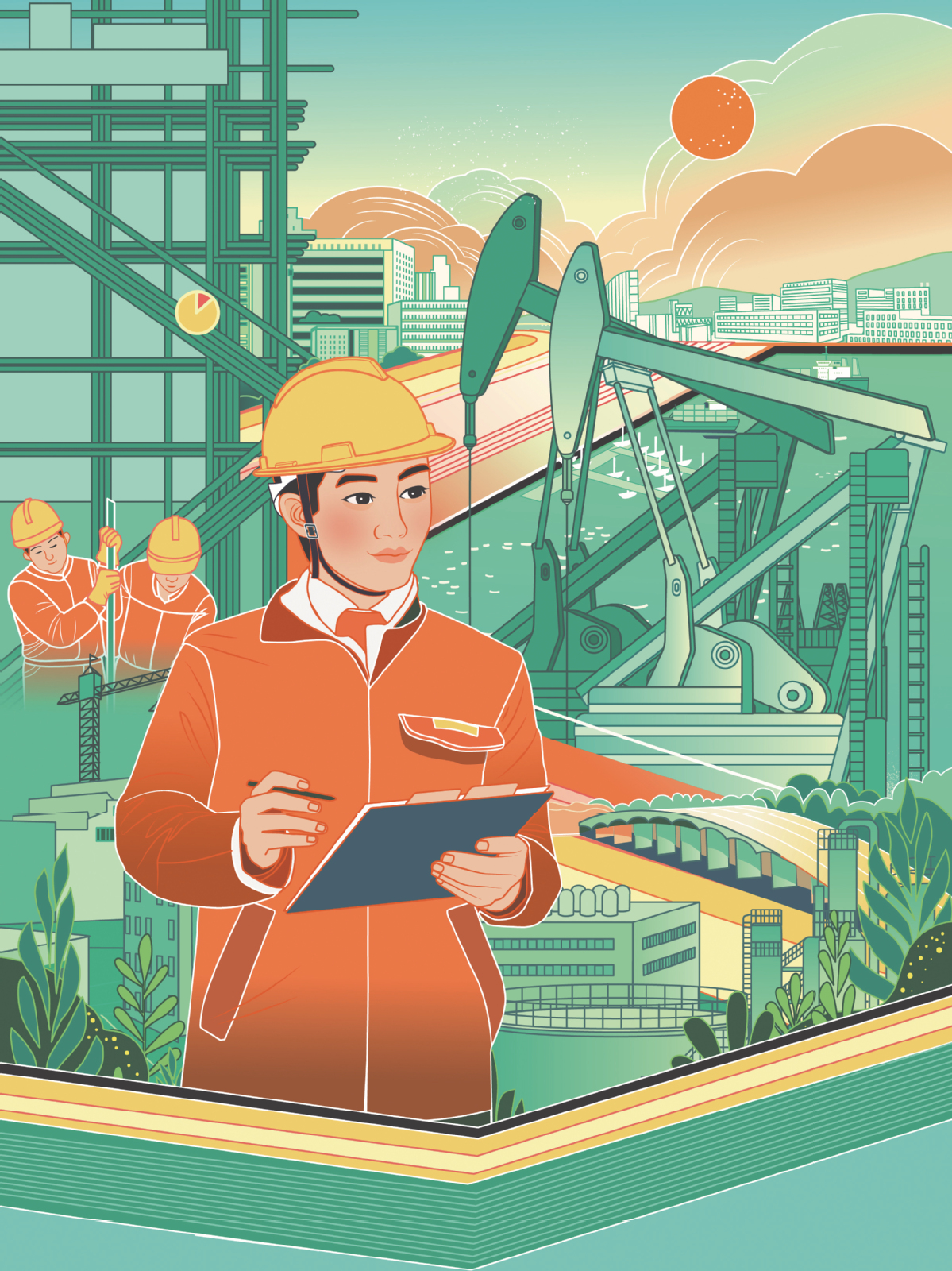Guideline targets industrial sector
China Daily, December 25, 2024 Adjust font size:

China will strive to construct a high-quality industrial workforce by optimizing skills, career development channels and rights protection measures for the sector's workers, who are seen as the backbone of the nation.
The Communist Party of China Central Committee and the State Council, China's Cabinet, recently released a guideline aimed at deepening reform in the nation's industrial workforce development, in a bid to improve workers' sense of achievement and happiness and inspire them to strongly support Chinese modernization and rejuvenation.
According to the guideline, the nation has set a target of producing about 2,000 national-level master artisans, 10,000 provincial-level master artisans and 50,000 city-level master artisans by 2035. The nation also aims to improve public awareness of the industrial workforce and foster a society that values labor and related skills.
Master artisans are senior workers who have served on the front lines of production for at least five years, are known for their high-quality craftsmanship and exhibit strong concentration, perseverance and an eagerness to pursue excellence.
Xu Liuping, Party secretary of the All-China Federation of Trade Unions, said in a recent article in the Study Times, a journal of the Party School of the CPC Central Committee, that deepening reform in the industrial workforce is urgently needed to advance Chinese modernization.
Xu said China has over 200 million skilled workers, of whom 60 million are highly skilled.
However, the nation has a shortage of highly skilled industrial workers, so it's very important to improve the skills and abilities of such workers and cultivate more master artisans and highly skilled talent to develop a more sound workforce in the process of building China into a modern socialist country, he said.
The guideline requires governments at all levels to optimize coordination and negotiation mechanisms to better manage labor relations between industrial workers and their employers.
It also calls for the high-quality development of vocational education by incubating a batch of first-class companies that can well integrate their industrial production experience with efforts to cultivate talent. Master artisans or highly skilled workers are encouraged to take part-time teaching jobs at vocational schools or colleges to help improve the quality of education.
The nation will carry out some continuing education programs to help industrial workers hone their skills. Online skills learning platforms will be established, and universal skills training services will be accessible to individuals such as migrant workers and the flexibly employed, according to the guideline.
The guideline also emphasized job promotion and better pay for industrial workers. The evaluation system for such workers should examine their innovative capabilities, work skills and contributions, as well as their individual craftsmanship and work ethic.
Under the guideline, fairer and more reasonable distribution mechanisms should be established at companies so that industrial workers' salaries can be determined based on their performance, abilities, innovations and contributions. Explorative steps such as the implementation of annual salary systems and share incentive plans can be introduced to master artisans and highly skilled people.
"The guideline is inspiring to us average workers at manufacturing plants. I've heard some stories about national master artisans and have set them as my example," said Li Wenqian, a 22-year-old working at an electronic component company in Dongguan, Guangdong province.
She said the public has a stereotypical view of industrial workers, thinking that such jobs are boring and tiring.
"Things are different. Many of the facilities at my factory are using top-notch technologies, and we have colleagues with master's degrees operating these facilities. And our pay is quite good," she said, adding that she is planning to further her studies soon to advance her career.
The guideline stresses protecting the rights of the industrial workers, as well as their health and safety while on the job. Under the guideline, employers are urged to sign labor contracts with industrial workers, and local authorities should manage labor disputes and tighten supervision over employers to ensure they don't violate workers' rights.
Industrial workers engaged in high-risk projects such as mining and aerial work should be better protected, the guideline says, and companies should follow national regulations on working hours, rest time and personal leave to ensure the physical and psychological health of such workers.
China is encouraging more young people to join the industrial workforce by providing them with more preferential policies and better working environments. Young college graduates are urged to learn skills and use those skills to get better jobs, according to the guideline.
Moreover, the guideline aims to develop migrant workers into high-quality modern industrial workers by organizing skills training programs, helping them integrate into cities effectively by easing policies related to their permanent urban residency registration, and giving them access to the same public services as urban residents.
"The nation has over 297 million migrant workers as of 2023, according to the National Bureau of Statistics. Migrant workers are an important part of the industrial workforce, and they are also important to the population's high-quality development and to achieving common prosperity," said Jiang Wenliang, an official from the All-China Federation of Trade Unions, at a recent news conference in Beijing.
He said that the federation continues to deal with the payment arrears owed to migrant workers and has designated an increasing number of the workers as May 1 Labor Medal winners — the nation's highest honor for laborers — in recent years.